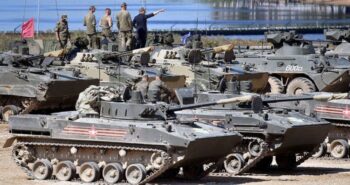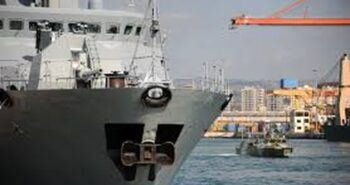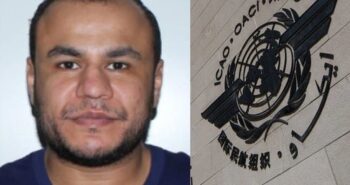By William Danvers
If Libya is to successfully rebuild and become a more stable presence in an unstable and volatile region, the Libyan people must support one government. Just as importantly, the issue of security must be addressed.
***
PART THREE
Recommendations
Defeating IS
– Defeating the Islamic State must be the No. 1 priority in efforts to make Libya more secure.
The Government of National Accord must continue to work with the United States to defeat IS. The GNA must continue to renew requests to have the United States help defeat IS in Sirte until that mission is complete. While defeating IS in Sirte does not mean that it will be eliminated from Libya, uprooting it from Sirte will undercut both its ability to operate in a key geographical location in Libya and its image as a growing and successful jihadi threat.
– The United States must take the lead in supporting the GNA’s fight against IS, but it must also work with regional partners, including Egypt and Tunisia, as well as with European nations. There has to be an effort to coordinate international involvement in the fight against IS, and the United States must take the lead in coordinating this effort. In particular, the United States Africa Command, or AFRICOM, which has been doing a good job at addressing some of the security challenges in Libya, should organize regional and NATO allies that are involved in the fight against IS. This includes NATO nations such as Italy, France, and Great Britain. It also includes allies from the Middle East North Africa region such as Egypt and the United Arab Emirates.
– Eliminate IS in Sirte but also prevent it from relocating elsewhere in Libya.
Getting IS out of Sirte will not be the end of IS in Libya. IS will likely move to Libya’s southwest region, where it will continue to pose a challenge to Tunisia and other North African nations, as well as the Sahel. (1)
There is also a potential threat of IS moving into the Sinai in Egypt. AFRICOM must also take the lead here in developing a strategy with U.S. allies to prevent IS from regrouping elsewhere in Libya. This should involve the United States and allied intelligence resources as well.
Addressing the militia problem
– Build a coherent and functional national security structure in Libya that accommodates local security concerns and militias without undermining a national government.
This national security structure should include an armed force loyal to the central government, the police, and the border patrol. While regional authorities—including militias—must support this structure, the regions must retain a certain degree of autonomy and authority. Gen. Haftar’s Libyan National Army could play a critical role in a national security force, but it must work under the GNA or its democratically elected successor government.
– The international community must offer law enforcement and military training for Libyan security forces on a national and regional level as part of a security restructuring.
The effort to balance the interests of regional and local militias can be done more easily if the international community—the United States, the European Union, and MENA nations—works with the GNA in the training of the army and law enforcement forces. The United States can take the lead in organizing the effort, but the European Union are well placed both in terms of geography and ability to play the biggest role in training. This training can take place in Libya or outside Libya, wherever makes the most sense. The key is to set up programs that will not only offer technical training but will also help instill a sense of loyalty to the central government.
– Reduce the number of militias by eliminating and consolidating existing militias.
There must be an effort to integrate militias into a national network of security forces that are connected to the central government. One possibility would be to create national guard units that answer to both regional and central governments. This would allow militias to maintain some autonomy but also make them part of Libyan regular security forces.
– Jobs and education programs must be established that will offer alternatives for those in militias.
As part of the effort to eliminate some of the militias, education and jobs programs must be created that will offer an alternative to those who depend on the militias to support themselves.
While Libya has attempted its own disarm, demobilize, and reintegrate, or DDR, program, it would do well to study Colombia’s DDR program as a successful example of how to reintegrate militia members into society. (2)
While the situation in Colombia is not the same as that in Libya, there are lessons that can be drawn from the successes and limitations of the Colombian program. Having the Colombians work directly with the Libyans on developing their own DDR effort is worth considering.
Fighting crime and crime networks
– Developing national and regional law enforcement entities to take on criminal elements is essential to push back against Libya’s criminal underground.
While there must be a national law enforcement structure that is a function of the central government, local militias should be incentivized to become part of a national anti-crime undertaking. Funding and training provided by the central government will help convince local militias to participate.
– International organizations such as Interpol and U.S. and EU national law enforcement agencies must help Libyan law enforcement fight criminal gangs through training and information sharing.
Training is essential to ensure that there is coherence to the development of Libyan law enforcement capacity. There is not a strong tradition in Libya of a neutral law enforcement infrastructure. This is both a problem, since there is no real precedent, and an opportunity, since training programs do not necessarily have to correct issues of existing law enforcement institutions.
– Libya must build a strong border presence by working with the United States, the European Union, and MENA nations and using human and technical means to enforce its borders.
Border enforcement is a necessary element of the effort to combat crime in Libya and to prevent criminal networks from acting with impunity across borders, as well as of coastal enforcement efforts. This will necessarily involve working with local militias and governing entities. It will also involve training, particularly with the development of a national border patrol and enforcement agency.
Conclusion
There are two essential components that must be present in the rebuilding of Libya. The first is effective governance administered by a central government that coordinates with governments from the Middle East North Africa region. The second—which is detailed in this report—is addressing Libya’s security problems.
Libyan security today is essentially a function of independent militias that have their own governing structures and their own loyalties and ambitions. At the moment, Libyan militias are working with the Government of National Accord to defeat the Islamic State in Sirte. And while defeating IS in Sirte is central to making Libya more secure—and while it cannot be done without the help of the United States and its allies—doing so will not be the end of its involvement in Libya. There must be a coordinated effort, led by the United States Africa Command, to prevent IS from taking root elsewhere in Libya once it is defeated in Sirte.
Even if the GNA, working with the international community, is able to defeat IS, this will only be part of what is necessary to make Libya more secure. There must also be a focused effort by the GNA, again supported by the United States and the international community, to deal with Libya’s militia problem, which must include the reduction and consolidation of militias.
Finally, Libya’s criminal underground cannot be permitted to proliferate and operate with impunity. There must be a stepped-up effort to develop a law enforcement infrastructure—national and local—that will deal with the burgeoning rackets of trafficking people, drugs, and arms.
While there may be little appetite on the part of the United States to take the lead with the overall effort to assist Libya, helping the country rebuild is possible if the United States leverages its power and marshals the support from Libya’s neighbors and the European Union. There is a path forward in Libya, but time is rapidly running out.
***
Endnotes
-
Belgian Ministry of Foreign Affairs and others, “Libya: Militias, Tribes and Islamists” (2014), available at http://www.landinfo.no/asset/3025/1/3025_1.pdf; Christine Balling, “Once Were Warriors,” Foreign Affairs, October 25, 2012, available at https://www.foreignaffairs.com/articles/americas/2012-10-25/once-were-warriors.
William Danvers is a Senior Fellow at American Progress, where he works on a range of national security issues. Danvers has worked on national security issues for 34 years in the executive branch, Congress, various international organizations, and the private sector.
__________________




